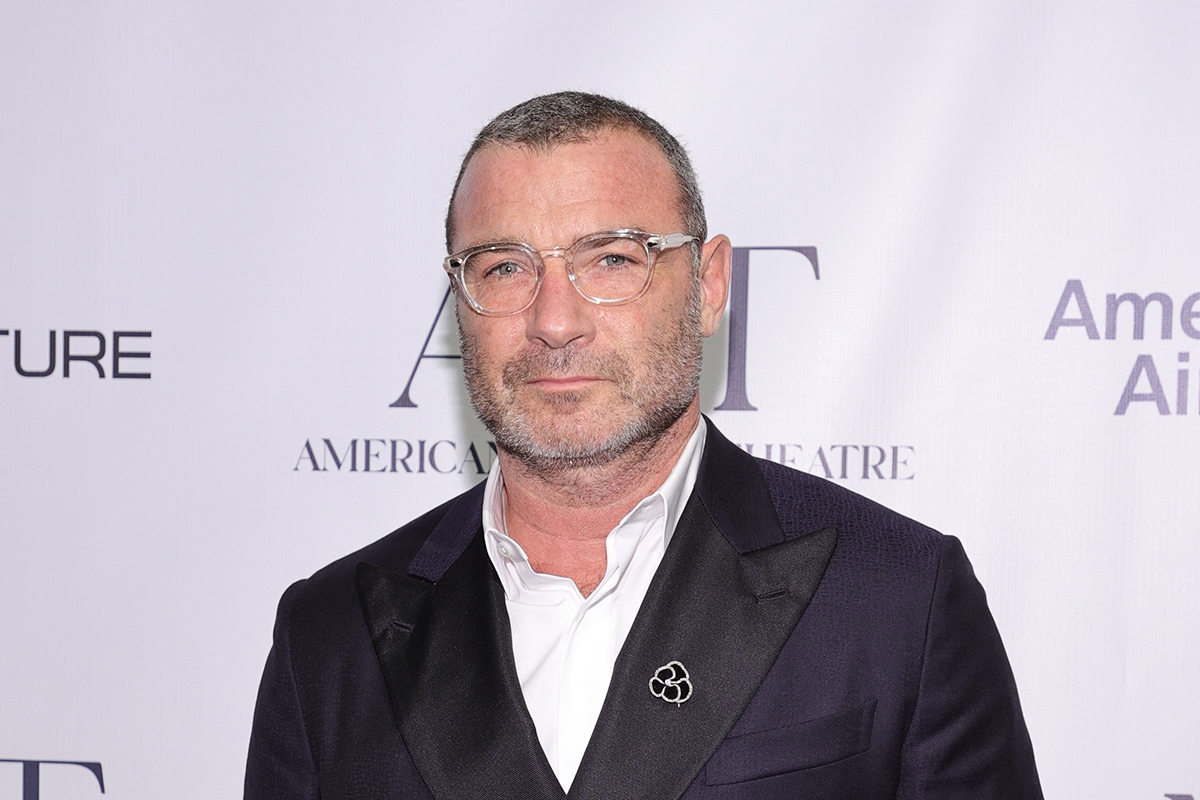Last weekend, a special guest attended Shabbat services at New York’s Temple Emanu-El’s Streicker Cultural Center: Emmy-nominated Jewish actor Liev Schreiber, who most recently starred as Otto Frank in the excellent “A Small Light.”
Schreiber, whose grandfather was Ukrainian, was there with his BlueCheck Ukraine co-founder Michael Goldfarb. The organization helps vet non-profits and charity causes in Ukraine and give money to those who need it most.
Schreiber was inspired to create it after spending time in 2022 in Poland and Ukraine and meeting with Ukrainian refugees of the war. During Passover of that year, he cooked pounds and pounds of brisket for displaced Ukrainians.
At the Shabbat service, Schreiber took to the stage to talk about his work in Ukraine, but also to give a sermon about the importance of truth and debate in Judaism that feels especially dire and needed in this moment of strife across the world — with the upcoming 2024 U.S. elections and the terrible war raging in Gaza after the horrifying October 7 attacks in Israel.
Schreiber shared with listeners in the auditorium that what he loves most about Judaism is that “questions and debate are at the heart of Jewish thinking.”
“As if truth and its constant need for calibration were a matter of life and death,” he declared with great passion, referring aptly to our “deeply polarized and protean world.”
It is, he said from the stage, “a world in which speaking louder or speaking first is valued more than speaking truth; a world where misinformation and disinformation separate us so profoundly from rational thinking.” He added that our society often makes the opinion of a celebrity or someone with a big social media following somehow of more value than “the actions of a 22-year-old medic in southern Israel, who throws her body into the line of fire to protect the people she loves. Or, for that matter, a Palestinian doctor who refuses to abandon his hospital and the patients he cares for.”
He decried our wold of algorithms, designed to “categorize and divide us for the purposes of marketing,” which has “separated us so completely from any true sense of ourselves that we have forgotten who we are, where we’ve come from and perhaps most importantly, the shared values and moral imperatives that by design should bind us together.”
Intentional or unintentional, our online world is meant to polarize us. The more we study how opinions are formed on the internet, the more we realize that it, and especially social media, is a place that entrenches us in our existing beliefs and world views more than it opens our eyes to our shared humanity. Having an idea retweeted 10,000 times doesn’t make it any more or less true, but it makes it feel more true. Celebrities can’t tell us more about this moment than veteran scholars, but their online pulpits give their words greater import. And it’s easy to forget that the people we’re vilifying and dehumanizing online are actually flesh and blood. It’s a lot harder to admit that there’s so much that we don’t know or understand about the lived experience in Israel, in Palestine and beyond.
At a Q&A about his new movie “Between the Temples” earlier this month, actor Jason Schwartzman said that the most important thing he learned about Judaism is “this idea of contributing what you don’t know to the table.”
That value of question and debate, of being in the discomfort of unknowing and searching for the truth, feels so important today.








